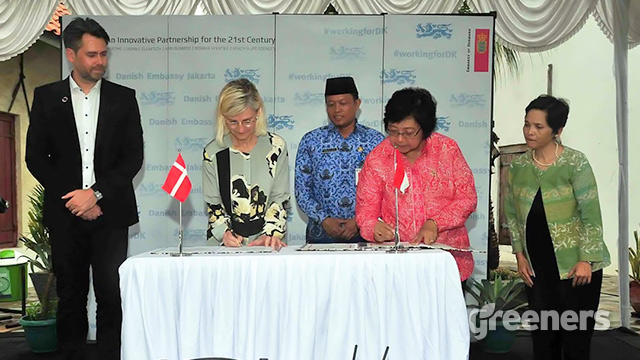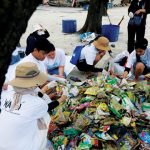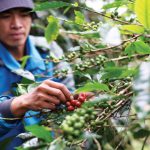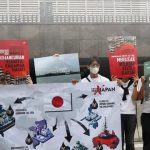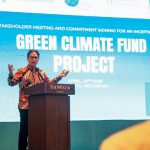Jakarta (Greeners) – Indonesia and Denmark establish an agreement to tackle waste and water issues worth of nearly US$150,000 through sharing best practice and innovation, said Minister of Environment and Forestry, Siti Nurbaya, in Jakarta, on Tuesday (2/5).
“[The] President has underlined waste is a problem for us. Hence, if waste can become resources and there are investors, we welcome [them],” she said.
READ ALSO: Ministry of Marine Affairs and Fisheries Will Focus On Ocean and Coastal Plastic Waste
The Government to Government Cooperation will see Danish experts assigned to Indonesia starting on July 2017.
On her visit to Jakarta’s northern coastal area with Minister of Development Cooperation, Ms. Ulla Tornaes, Minister Nurbaya said that ocean pollution in the area was categorized as heavy.
“From our observation with Ms. Ulla, we can still found waste floating in the ocean. The color is murky and dirty. We can imagine the big challenge faced by Indonesia in waste and water management,” she said.
Meanwhile, Ms. Tornaes said that the agreement aimed at technology and knowledge transfer. In addition, developing waste and water management. Based on experience, she added, Denmark was able to recycle up to 70 percent of its waste and transform it to energy.
“I come here to know more about challenges in Indonesia in relation to its waste and water management, including plastic waste. Denmark posses the knowledge and experience in the issue which we want to share to Indonesia,” she said.
READ ALSO: Two Approaches To Manage Waste Water From PUPera
On the trip, Minister of Environment and Forestry visited four locations, — Muara Angke, Kali Pesanggrahan, Pluit Pump Station and Sunda Kelapa –. Based on national data and solid waste profile, waste production in Indonesia reaches 64 million tons per year.
In 2025, Indonesia aims to reduce waste up to 30 percent or 20.9 million tons per year and manage waste up to 70 percent or 49.9 million tons per year.
Waste composition in Indonesia comprises of 60 percent organic, 15 percent plastic, 10 percent paper, and 15 percent of metal, glass, clothes and leather. Hence, Indonesia has bigger opportunities to produce energy from waste sector.
Reports by Danny Kosasih







































